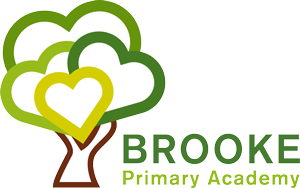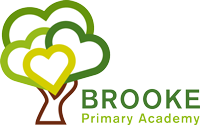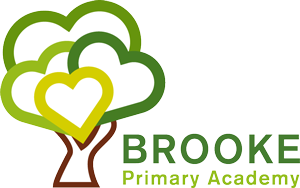
A Venn Academy Trust School
– Together we will…
Venn is a pioneering academy trust, committed to building educational environments where all pupils are inspired to become lifelong learners who achieve the very highest standards possible.
Collaborating with all partners, the Trust works with its unique settings to create world class learning experiences for all.

Computing
Ambition
At Brooke Primary Academy, we will equip all learners with the experiences and skills of computing that they will use in a rapidly changing technological world. We want learners at Brooke to be confident and independent in their use of computers and technology to solve problems across the curriculum. As well as, ensuring learners are using technology safely and understand the importance of being safe online.
Implementation
We will provide a high quality, rich and practical computing curriculum, developed by our computer lead based upon the Purple Mash scheme of work to ensure continuity and progression in the acquisition of subject knowledge and skills. Teachers will use the agreed unit plans as the basis for their day to day planning. Ongoing assessments will be carried out using the National Curriculum and the tailor-made scheme of work along with teacher assessments.
Impact
All children are entitled to the opportunity to develop computing capability through activities that arise in all curriculum areas, although some computing skills will be taught discretely.
Children will use this knowledge throughout their lives.
Digital Leaders
We also have Digital Leaders within each year group and across the school. These are children with a passion for technology who want to share their knowledge and skills with others. Digital Leaders will support and help their class teacher and peers in computing sessions. They will promote the use of all things digital throughout school.
Further information and resources

Reading and Phonics: The school is committed to ensuring all pupils learn to read. Effective training and support for teachers, along with appropriate reading materials and catch-up sessions, help pupils read accurately and confidently.

Support for SEND: The school effectively identifies and supports pupils with special educational needs and/or disabilities (SEND), involving parents in the assessment process and adapting lessons to help these pupils build new knowledge.

Anti-Bullying: Pupils respect each other, believe in the school’s values, and feel confident that any issues, including bullying, would be resolved quickly by adults.

Curriculum and Learning: The curriculum is well-considered, building on previous learning to deepen understanding. While assessment systems need improvement, the school’s overall approach helps in identifying and supporting pupils’ needs.

Safeguarding: The school has effective safeguarding arrangements, creating an open and positive culture that prioritises pupils’ interests.

Governance and Leadership: Trustees and governors are skilled and committed, regularly visiting the school and maintaining an accurate picture of its operations to ensure continued improvement.

Early Years Provision: The early years setting promotes positive relationships and collaboration among children. Adults model effective communication and use assessment well to engage children in their learning.

School Environment: The academy is described as a warm and welcoming place where pupils feel safe and happy. Respectful and positive relationships are central to the school’s environment.

Positive Behaviour: Changes in how behaviour is managed have helped pupils reflect on their feelings and make better choices. This has resulted in positive behaviour during lessons and playtimes.

Promotion of Values: Pupils learn about diversity and British values through various activities and demonstrate positive attitudes and respect for others. The school also encourages community involvement, such as the choir singing in residential homes and helping at the local food bank.

Extracurricular Activities: There is a wide range of clubs available, such as football, rugby, forest school, and choir, which help develop pupils’ talents and interests.

Overall Effectiveness: The school is rated “Good” in all categories, including quality of education, behaviour and attitudes, personal development, leadership and management, and early years provision.

High Expectations and Progress: The school sets high expectations for all pupils, which are being met. Parents appreciate the support and information provided by the staff and are pleased with the progress their children make.


